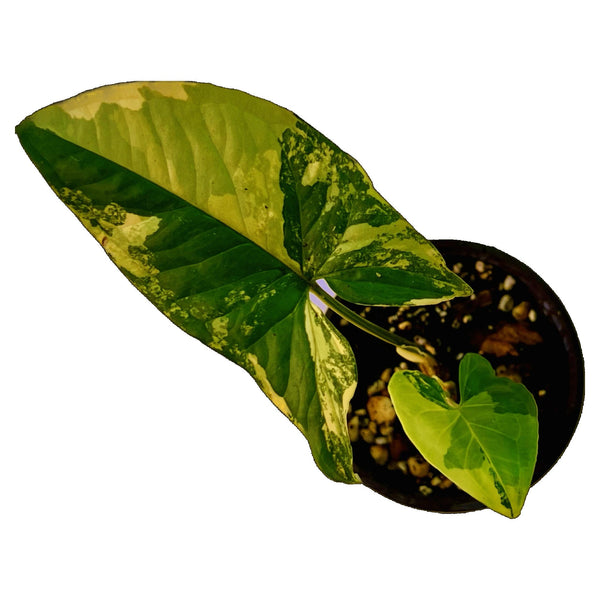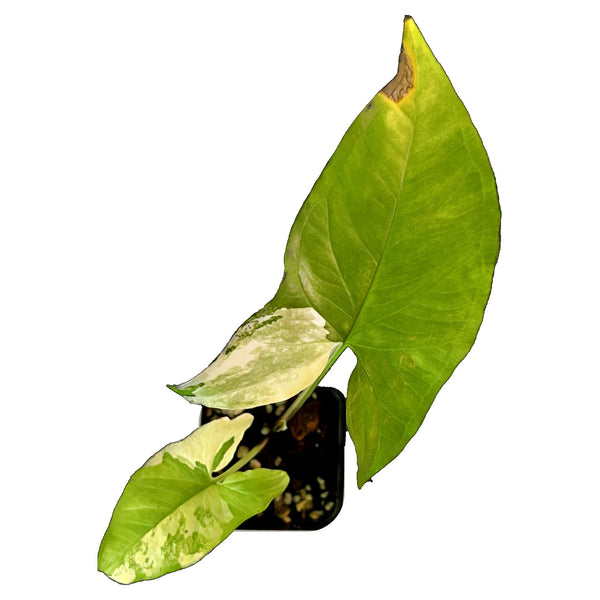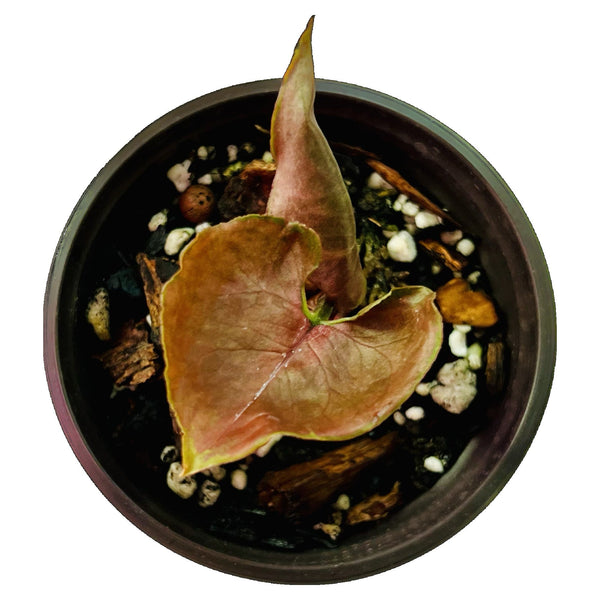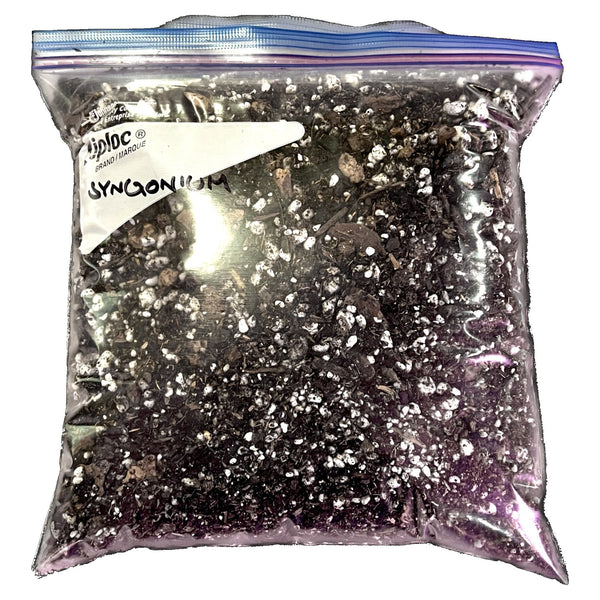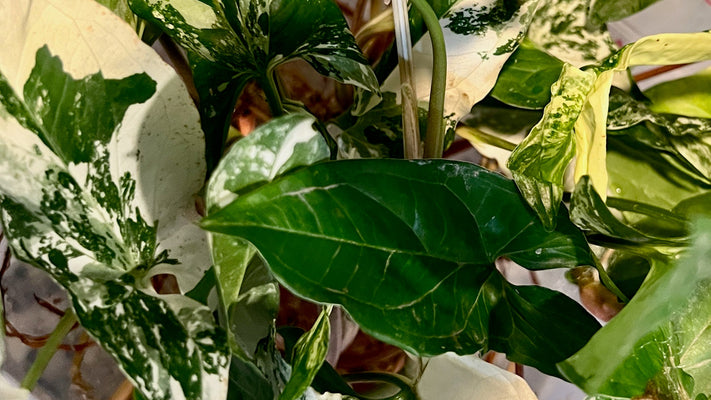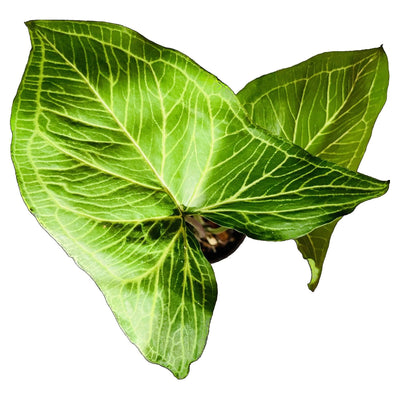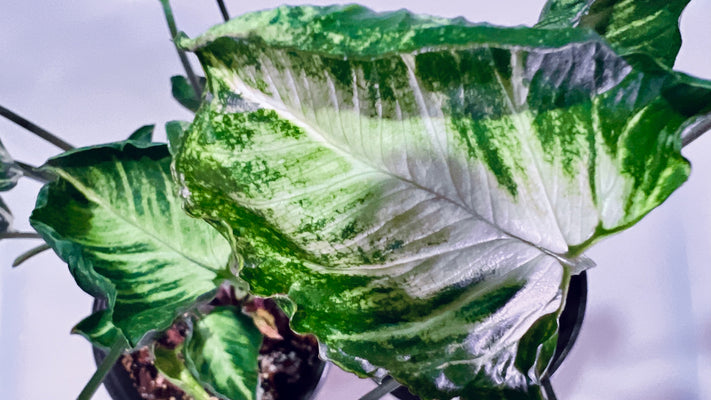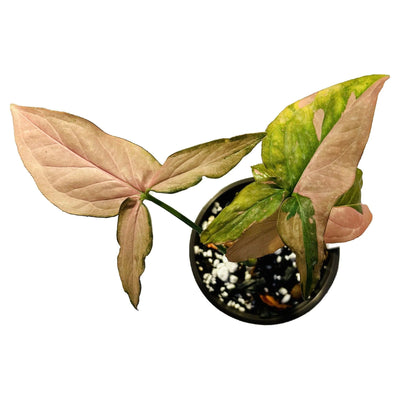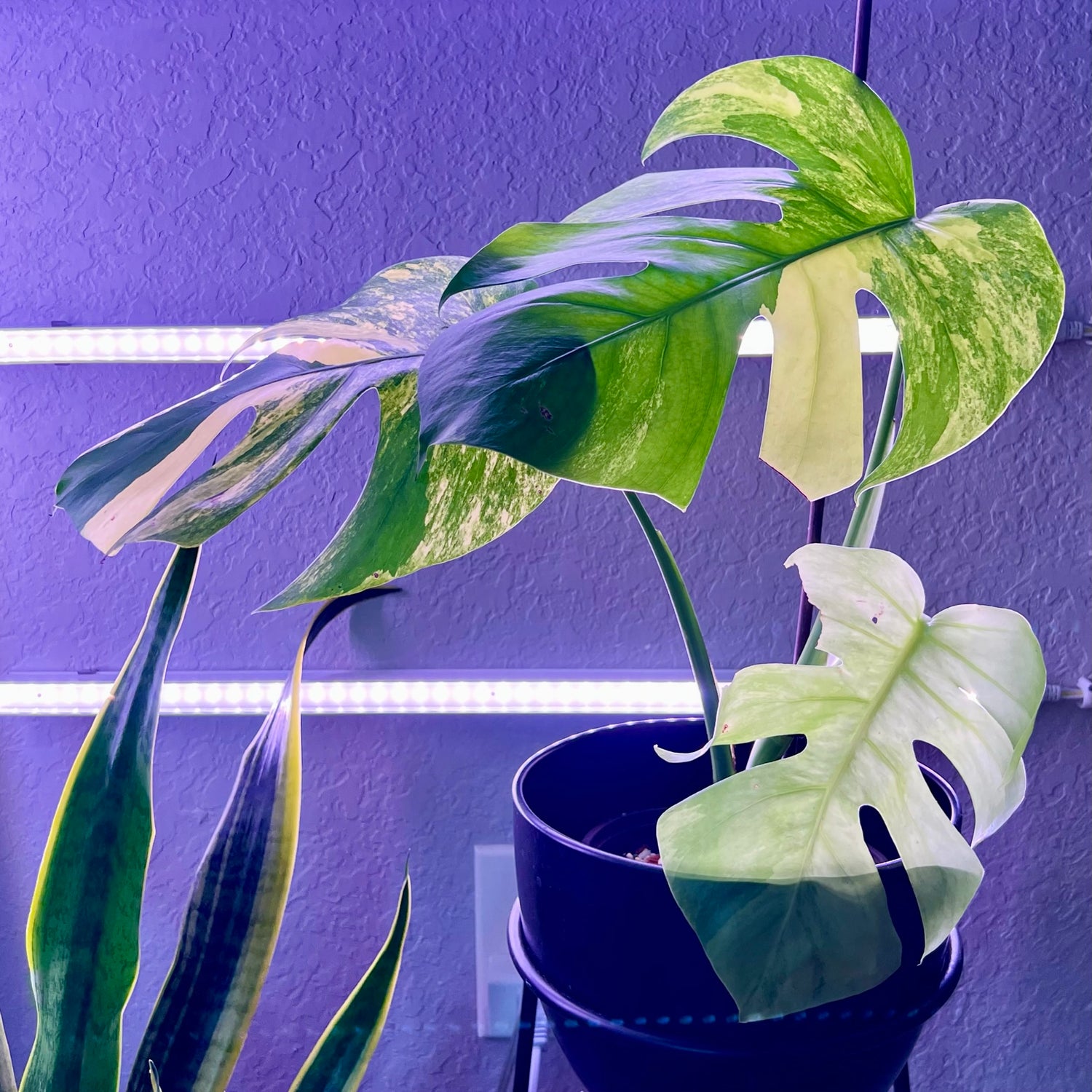Syngonium Aurea
Published: Apr 13, 2023
• Updated: Sep 19, 2023
A comprehensive guide to Syngonium Aurea including care instructions, where to purchase, and handpicked resources for further learning.
By: Nalin Singapuri
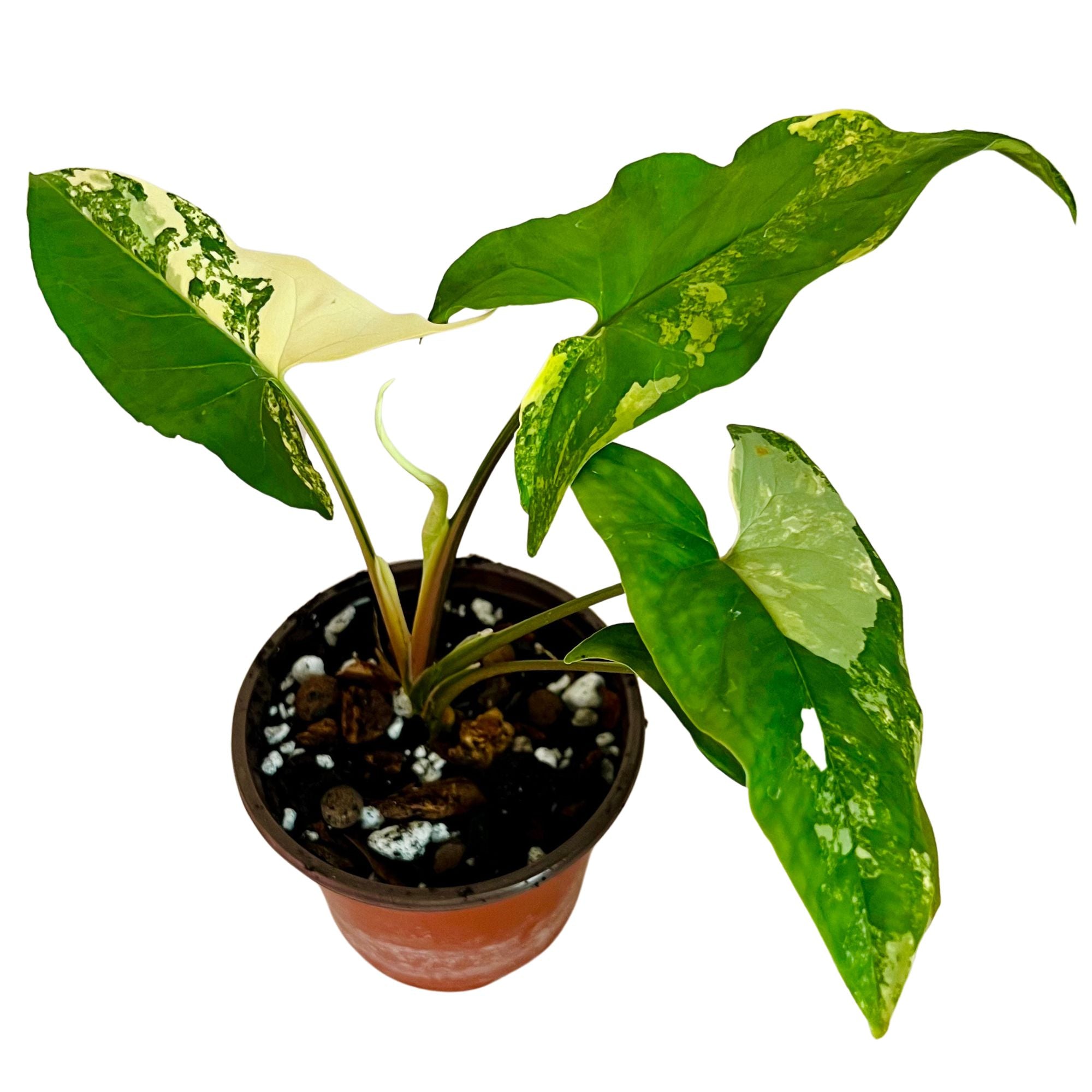
Table of Contents
Syngonium Aurea
- Where to buy an Syngonium Aurea
- Characteristics
- Caring for your Syngonium Aurea
- Light: Bright Indirect Sun, Variegation Warning
- Water: When top inch of soil is dry, Do not overwater, Ensure drainage
- Soil: Syngonium Mix, Leca, Sphagnum Moss
- Humidity: 60, tolerant
- Repotting: 1-2 years when rootbound, moss pole
- Propagation: Node Cuttings, Syngonium
- Pruning: when necessary, for variegation
- USDA Zone: 10 - 12
Shop: Syngonium Aurea
And similar species
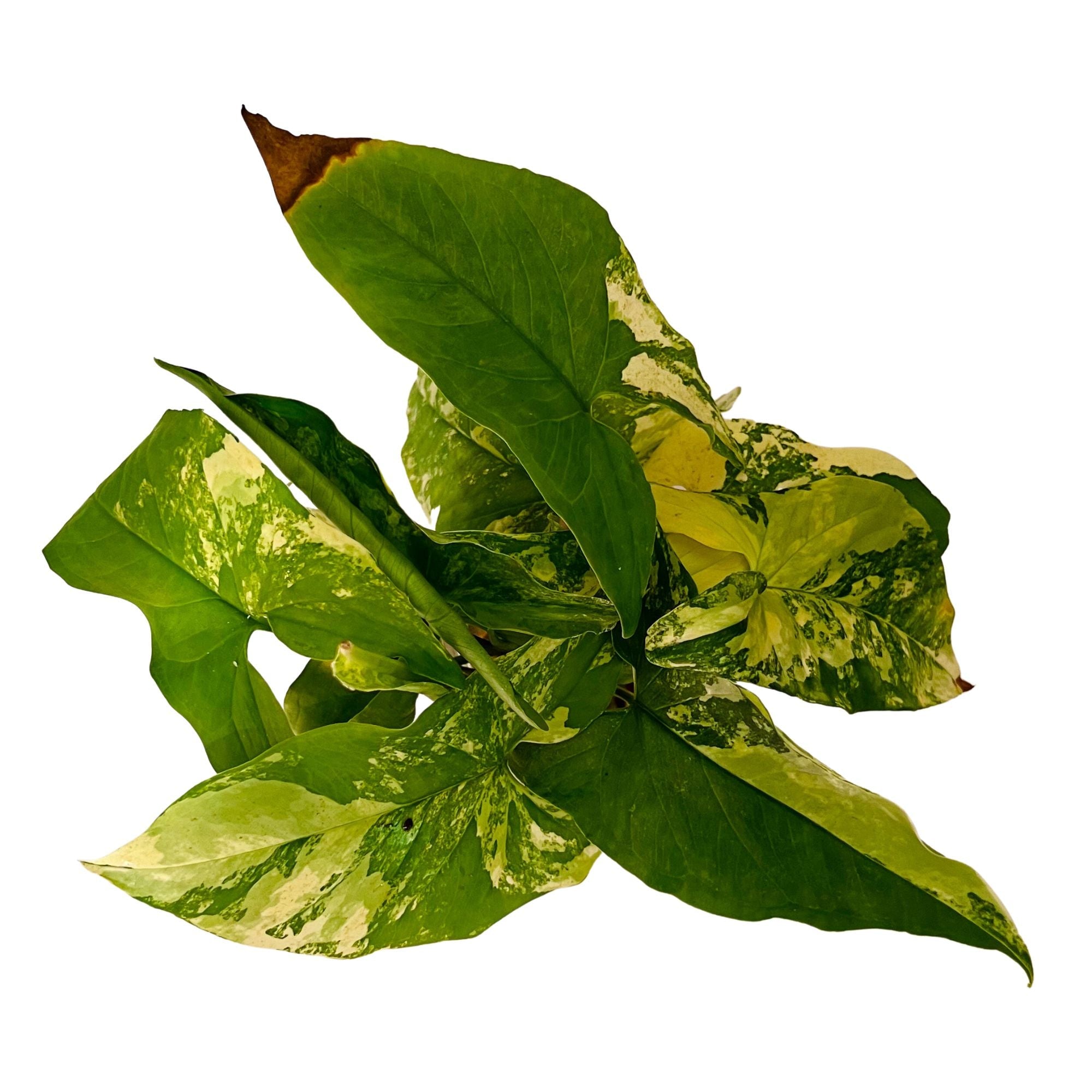
Syngonium Aurea Characteristics
Scientific Name:
Syngonium Podophyllum 'Aurea'
Common Name(s):
Syngonium Aurea
Native Environment:
Rainforests
of Mexico, West Indies, Central America
Variegation:
Variegated (stable)
Toxicity:
Toxic
Growth:
Epiphyte, Terrestrial
Syngonium Aurea Care
Syngonium Aurea, also known as Arrowhead Plant, is an easy-to-care-for houseplant with beautiful yellow variegation on saturated green leaves.
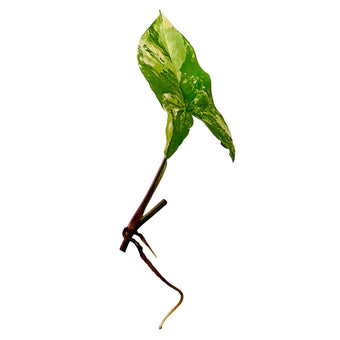
Syngonium Aurea - Cutting
Light
Syngonium Aurea plants prefer bright, indirect light. Avoid placing her in direct sunlight, as this can burn her leaves. Inadequate light can lead to slow growth, smaller leaves, and reverted variegation.
Water
Use a finger to probe the top inch of soil and water your Syngonium Aurea when she feels dry to the touch. Soak throughly, let water run through drainage holes in the pot. Do not overwater, as this can lead to root rot. Ensure proper drainage and prevent water from pooling in the pot. Make sure to use a planter with drainage holes, which can be nested inside of a decorative planter if desired.
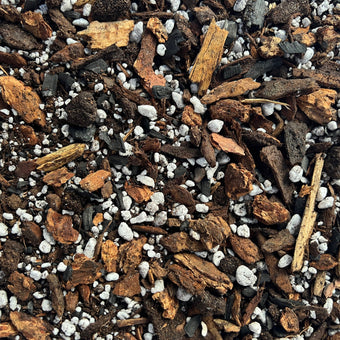
syngonium mix is great for the Syngonium Aureas roots
Soil
Syngonium Aureas love a rich, well draining soil with chunky bits to help oxygenate the roots. A mixture of 1/3 orchid bark, 1/3 perlite and 1/3 compost works well. Our Syngonium Saturday Potting Mix features more granular size bark and perlite specifically for Syngoniums and augments these ratios with additional ingredients like charcoal and worm castings to help supply added nutrients.
Plants with thicker roots like Syngonium Aureas grow well in a substrate like LECA. Care must be taken to ensure that she gets proper nutrients.
Finally, damp sphagnum moss is a great fit for rooting new cuttings or sick Syngonium Aureas. Leave in moss only until secondary roots develop and them move to a different substrate.
Fertilize
Fertilize your Syngonium Aurea plant once a month during the growing season (spring and summer) with a balanced, water-soluble fertilizer.
Humidity
Syngonium Aureas prefer moderately high humidity (around 60% in their native habitat). To increase humidity, you can place a humidifier nearby, group the plant with other plants or utilize an greenhouse cabinet or other high humidity space. She will tolerate average household humidity levels, lower the humidity slowly over time to help her acclimate.
Repotting
Repot your Syngonium Aurea plant every 1-2 years, or when it becomes root-bound. Transfer to a pot with drainage holes thats an inch or two larger. Consider adding a sphagnum moss pole when repotting to help support larger plants (check out our sphagnum moss pole howto for details)

Syngonium aurea bare root plants
Propagation
Syngonium Aureas propagate via node cuttings. Select an area with a few nodes and remove it from the mother with clean scissors. Trim excess leaves and root in water or sphagnum moss. Our beginners guide to syngonium propagation details the process.
Pruning
Trim any yellow or brown leaves off your Syngonium Aurea as they appear. You can prune the plant to control its size and shape. You can also trim your Syngonium Aurea to encourage balanced variegation. If you get 2-3 completely variegated or completely green leaves in a row trim back to the last partially variegated leaf for more balance. Fully variegated leaves are a drain on the plants resources, while fully green leaves have likely reverted.
Zone
Syngonium Aurea can be grown outdoors in USDA Hardiness Zones 10 to 12.
By following these care tips, your Syngonium Aurea plant should thrive and continue to add beauty to your space.
More Plant Care Guides
Plants Similar to Syngonium Aurea
Resources and Further Reading
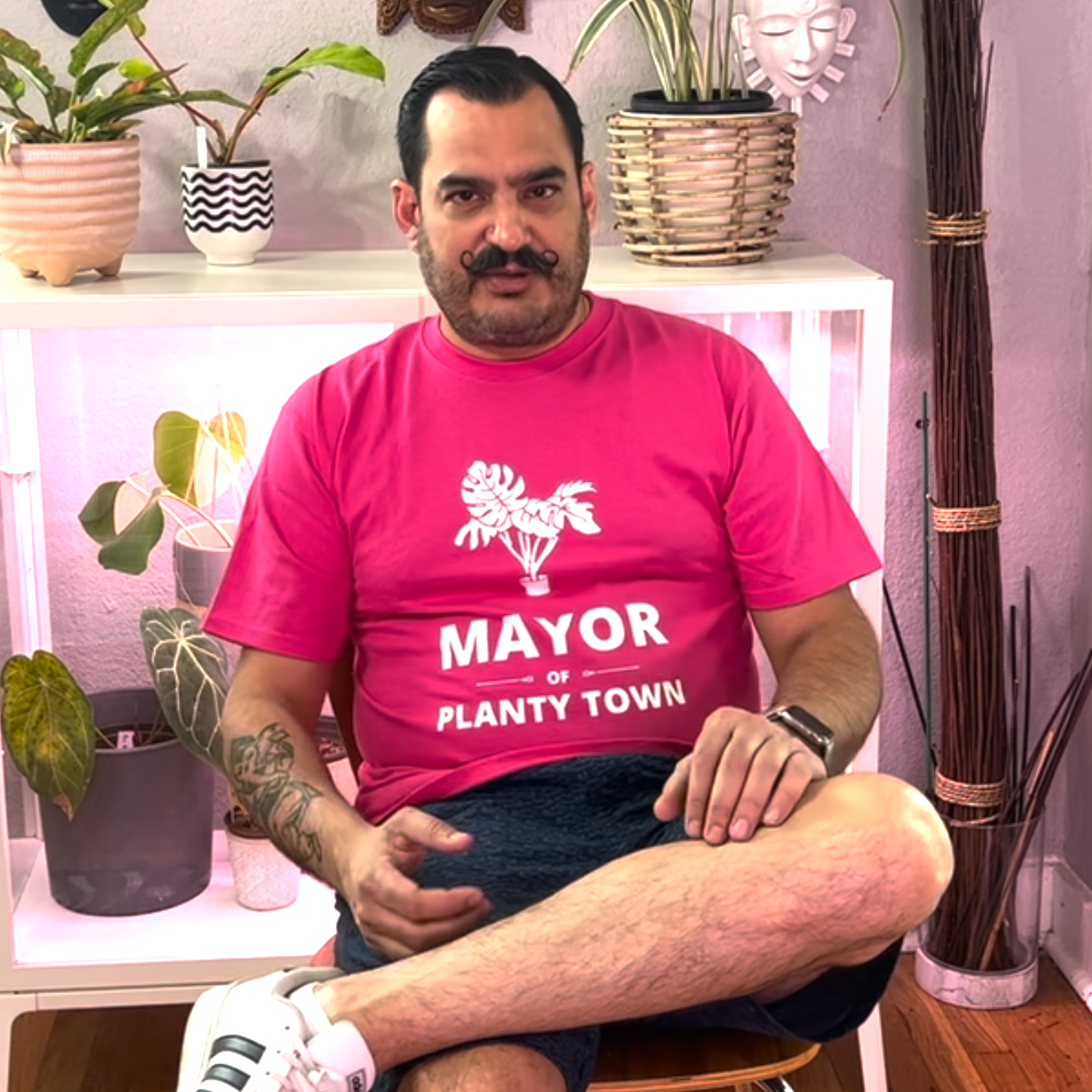
Nalin Singapuri
Self appointed Mayor of Plantytown, the ultimate "Plant Whisperer" and the proud overlord of a jungle disguised as a nursery. With a green thumb so legendary, even the plants line up for selfies with him. 🌿📸
When he's not talking chlorophyll with his leafy friends, or writing engrossing articles about Syngonium Aureas you'll find him nurturing his nursery like it's his own personal garden of Eden.


